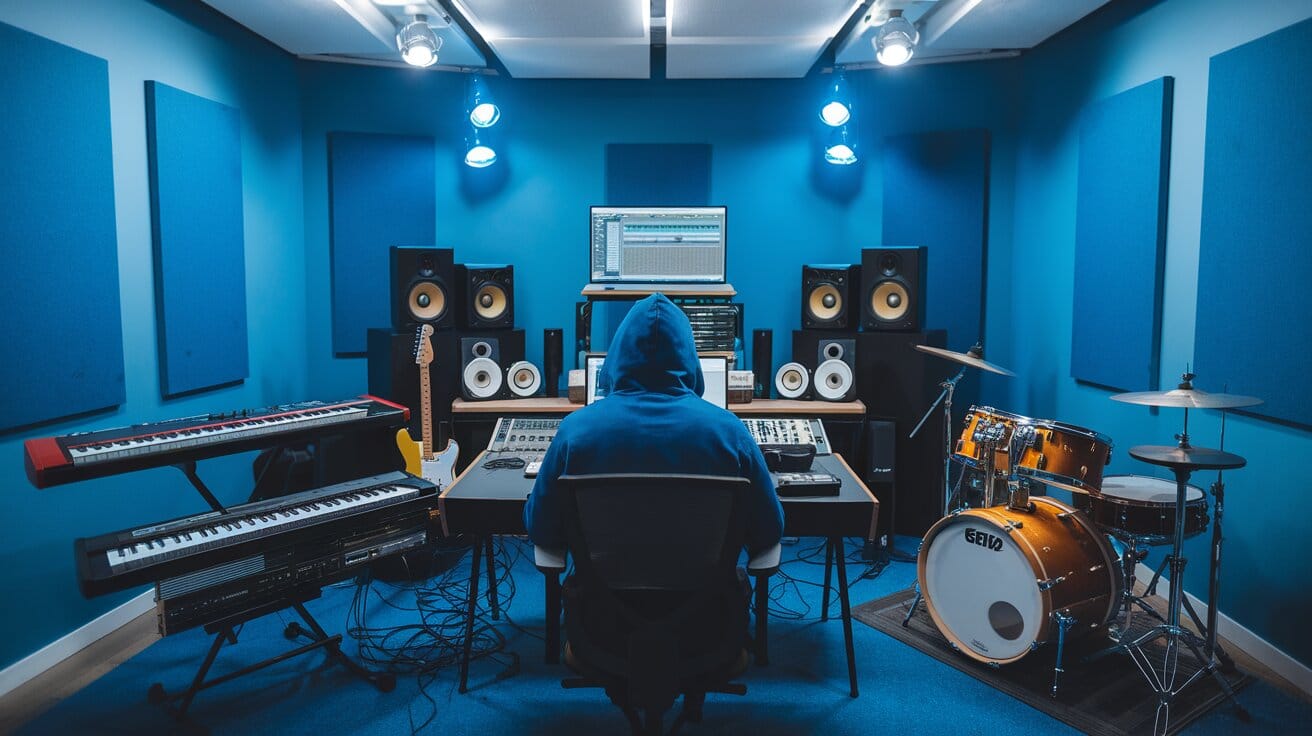

Are you ready to disrupt with AI? Join our Hackathon today! Click to Register
By WebOsmotic Team | Published on February 27, 2025
Summarize Article

Table of Contents
ToggleMusic has always been an intense expression of human sentiments and imagination. The harmonies, melodies, and lyrics we hold dear are intimately connected to human experiences. But with accelerating progress in AI in music composition, a new question now springs up—can machines produce hit songs that touch hearts and top charts?
The convergence of technology and music is creating opportunities that were once futuristic. This blog discusses how music composition AI is revolutionizing the industry and what it holds for the future of music.
The history of AI-generated music has been decades in the making. Here’s a glimpse of how it has evolved over the years:
| Year | Evolution of AI in Music |
|---|---|
| 1950s-60s | Basic experiments with computer-generated music, creating simple patterns and melodies. |
| 1980s | Algorithmic music emerged, enabling computers to generate structured compositions. |
| 1990s | Machine learning models began writing simple melodies and harmonies, improving through feedback cycles. |
| 2010s | Deep learning models generated complex compositions, mimicking human creativity. |
| Today | AI models like OpenAI’s MuseNet and Google’s Magenta create entire songs across multiple genres with high precision. |
AI in music composition relies on complex algorithms and vast datasets to generate melodies and harmonies. Here’s how it works step by step:
By doing so, AI is capable of creating music that is natural-sounding and even revolutionary in nature, but does it achieve the emotional depth of human-created music? Let’s take a closer look.
Utilization of AI to compose music is no gimmick—it possesses several advantages that are transforming the profession. Several of the biggest benefits are:
✔ Time-efficient composition process – AI can create melodies in a matter of minutes, significantly reducing the time required to produce new music
✔ Ability to create music across various genres – AI models are trained on diverse datasets and hence are able to compose music in numerous genres.
✔ Provides inspiration for human musicians – AI-generated melodies can serve as a foundation or inspire composers.
✔ Affordable production costs – AI software eliminates the need to hire large studio teams, hence saving on music production expenses.
✔ Custom music generation for games, movies, and advertisements – AI-generated music can be tailored towards specific projects, providing an enhanced user experience in digital media.
While these advantages make AI a valuable commodity, there is one basic question left unaddressed: Can AI really produce music with emotion?
Music generated by AI is one of the criticisms because it lacks the emotional sophistication that is given to the work by music producers who are human. That, however, is being turned on its head by advances in deep learning and sentiment analysis.
AI programs are now able to process lyrical material, tempo, and harmonic structures to produce music that conveys specific moods. AI, for example, can produce a melancholic melody with minor chord sequences or a cheerful song with major scales and faster tempos. Some even use Natural Language Processing (NLP) to produce lyrics that complement the mood of a song.
All of that being considered, music is not just about mathematical precision—it’s about storytelling, cultural context, and individual experience. Although AI is increasingly capable of replicating emotional depth, human input remains necessary in the creation of truly compelling pieces of music.
Experts in the industry anticipate that AI will remain a collaborative tool and not eliminate musicians entirely. Some of the most significant predictions are:
Rather than replacing human imagination, AI will instead complement it, broadening the scope of what can be done in creating music.
The role of AI in music-making is expanding, offering limitless avenues for artists, producers, and creators. Whether generating melodies, streamlining production processes, or assisting with creative brainstorming, AI will forever revolutionize the music world. The essence of music, however, will always remain in the imagination of human beings. AI is a mighty powerful tool, but the emotion, passion, and storytelling human beings bring to music will never be equaled.
No, AI will rather assist musicians than replace them. Human imagination and storytelling are still the unbeatable elements of music.
AI can generate complex melodies with impressive accuracy, but human refinement is often required to ensure emotional depth and originality.
Popular tools include OpenAI’s MuseNet, Google’s Magenta, Amper Music, and AIVA.
Yes, some AI models can generate both lyrics and melodies, though they often require human touch-ups for coherence and meaning.
Copyright laws on AI-generated music are still developing and can vary from country to country. Certain AI-generated music can be placed under public domain, while others need proper licensing and crediting.
Whether you are a musician, producer, or business looking for custom AI solutions, our specialists can help you tap into the potential of AI in music production. Contact us today to discover the future of music with cutting-edge AI technology.
Unlock exclusive insights and expert knowledge delivered straight to your inbox